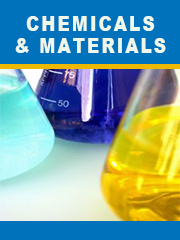Report overview
Ammonia, a colourless and nonflammable gas with a characteristic pungent smell, is a compound of nitrogen and hydrogen with the formula NH3. Ammonia is shipped as a liquified gas under its own vapor pressure of 114 psig. Most extensive use is in soil fertilization. This application is used in the form of salts, nitrates and urea.
This report aims to provide a comprehensive presentation of the global market for Hyperpure Ammonia, with both quantitative and qualitative analysis, to help readers develop business/growth strategies, assess the market competitive situation, analyze their position in the current marketplace, and make informed business decisions regarding Hyperpure Ammonia. This report contains market size and forecasts of Hyperpure Ammonia in global, including the following market information:
Global Hyperpure Ammonia Market Revenue, 2018-2023, 2024-2029, ($ millions)
Global Hyperpure Ammonia Market Sales, 2018-2023, 2024-2029, (Tons)
Global top five Hyperpure Ammonia companies in 2022 (%)
The global Hyperpure Ammonia market was valued at US$ 125.5 million in 2022 and is projected to reach US$ 171.9 million by 2029, at a CAGR of 4.6% during the forecast period. The influence of COVID-19 and the Russia-Ukraine War were considered while estimating market sizes.
Global Ammonia key players include Yara, CF, Shandong Everlast AC Chemical, Hangzhou Hengmao Chemical, DOW, etc. Global top five manufacturers hold a share over 20%.
China is the largest market, with a share about 35%, followed by North America, and Europe, both have a share about 35 percent.
In terms of product, Electronic Grade Aqua Ammonia is the largest segment, with a share over 40%. And in terms of application, the largest application is Agriculture Industry, followed by Rubber Industry, etc.
we surveyed the Hyperpure Ammonia manufacturers, suppliers, distributors and industry experts on this industry, involving the sales, revenue, demand, price change, product type, recent development and plan, industry trends, drivers, challenges, obstacles, and potential risks.
Total Market by Segment:
Global Hyperpure Ammonia Market, by Type, 2018-2023, 2024-2029 ($ Millions) & (Tons)
Global Hyperpure Ammonia Market Segment Percentages, by Type, 2022 (%)
6N
7N
Global Hyperpure Ammonia Market, by Application, 2018-2023, 2024-2029 ($ Millions) & (Tons)
Global Hyperpure Ammonia Market Segment Percentages, by Application, 2022 (%)
Semiconductor
Photovoltaic
LED
Others
Global Hyperpure Ammonia Market, By Region and Country, 2018-2023, 2024-2029 ($ Millions) & (Tons)
Global Hyperpure Ammonia Market Segment Percentages, By Region and Country, 2022 (%)
North America
US
Canada
Mexico
Europe
Germany
France
U.K.
Italy
Russia
Nordic Countries
Benelux
Rest of Europe
Asia
China
Japan
South Korea
Southeast Asia
India
Rest of Asia
South America
Brazil
Argentina
Rest of South America
Middle East & Africa
Turkey
Israel
Saudi Arabia
UAE
Rest of Middle East & Africa
Competitor Analysis
The report also provides analysis of leading market participants including:
Key companies Hyperpure Ammonia revenues in global market, 2018-2023 (Estimated), ($ millions)
Key companies Hyperpure Ammonia revenues share in global market, 2022 (%)
Key companies Hyperpure Ammonia sales in global market, 2018-2023 (Estimated), (Tons)
Key companies Hyperpure Ammonia sales share in global market, 2022 (%)
Further, the report presents profiles of competitors in the market, key players include:
Air Liquide
Linde
Suzhou Jinhong Gas
Zhejiang Jianye Chemical
Dalian Kled
Outline of Major Chapters:
Chapter 1: Introduces the definition of Hyperpure Ammonia, market overview.
Chapter 2: Global Hyperpure Ammonia market size in revenue and volume.
Chapter 3: Detailed analysis of Hyperpure Ammonia manufacturers competitive landscape, price, sales and revenue market share, latest development plan, merger, and acquisition information, etc.
Chapter 4: Provides the analysis of various market segments by type, covering the market size and development potential of each market segment, to help readers find the blue ocean market in different market segments.
Chapter 5: Provides the analysis of various market segments by application, covering the market size and development potential of each market segment, to help readers find the blue ocean market in different downstream markets.
Chapter 6: Sales of Hyperpure Ammonia in regional level and country level. It provides a quantitative analysis of the market size and development potential of each region and its main countries and introduces the market development, future development prospects, market space of each country in the world.
Chapter 7: Provides profiles of key players, introducing the basic situation of the main companies in the market in detail, including product sales, revenue, price, gross margin, product introduction, recent development, etc.
Chapter 8: Global Hyperpure Ammonia capacity by region & country.
Chapter 9: Introduces the market dynamics, latest developments of the market, the driving factors and restrictive factors of the market, the challenges and risks faced by manufacturers in the industry, and the analysis of relevant policies in the industry.
Chapter 10: Analysis of industrial chain, including the upstream and downstream of the industry.
Chapter 11: The main points and conclusions of the report.
